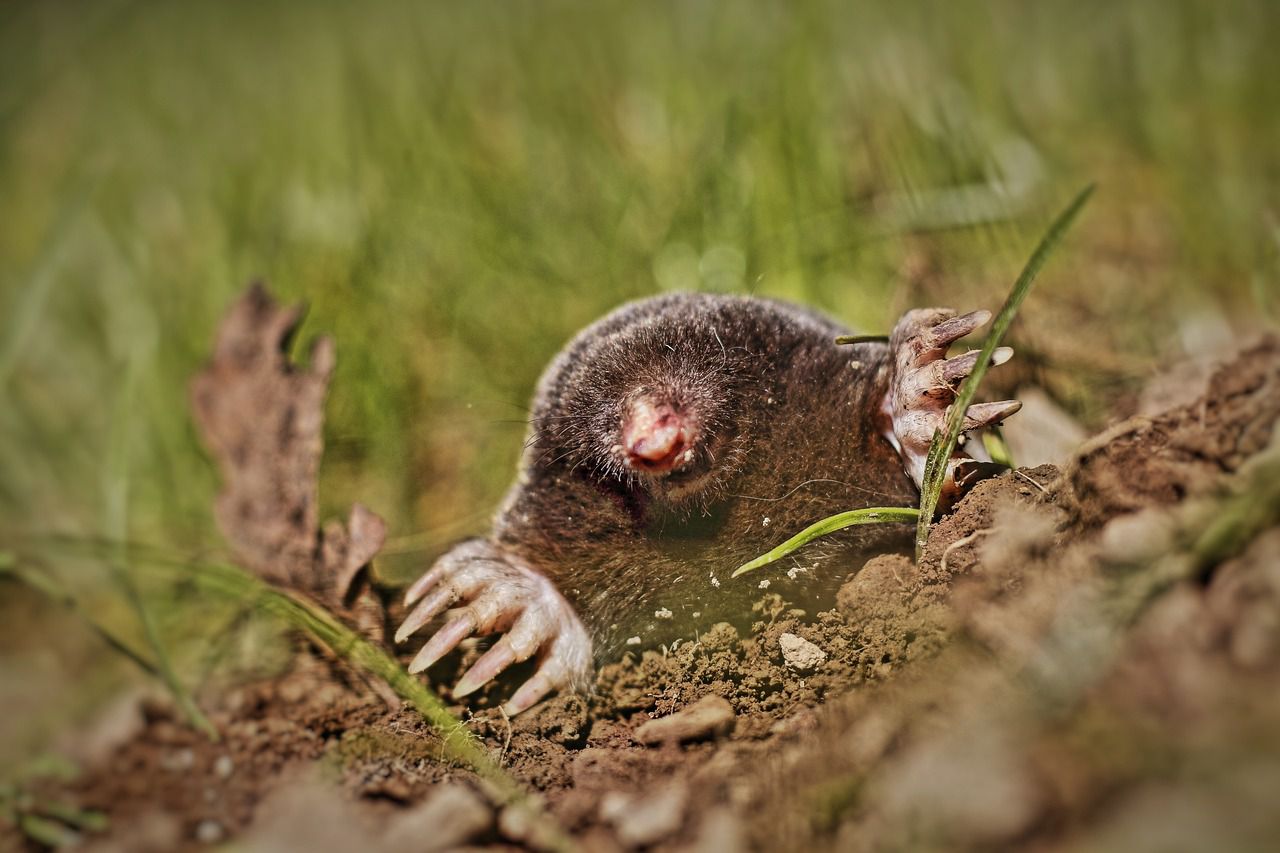While moles seem to be small and kinda adorable animals, they can damage your garden, destroying roots and digging tunnels.
If moles are causing damage to your garden, there are several steps you can take to address the issue.
Here are some methods to help you manage mole damage effectively.

Identify active tunnels
Locate the active mole tunnels in your garden.
Active tunnels are raised ridges on the surface of the soil that moles use to travel and search for food.
Physical barriers
Install physical barriers to deter moles from entering specific areas.
Make sure the barrier extends at least a foot below the surface to prevent the moles from burrowing underneath it.
Mole repellents
There are various mole repellents available in the market, including castor oil-based products or ultrasonic devices.
However, their effectiveness can vary, and it's important to follow the instructions and reapply them as needed.
Vibrating or sonic devices
Mole deterrents that emit vibrations or sonic pulses can be placed in the ground to disrupt the moles' sensitive hearing and vibrations.
These devices can be effective in deterring moles, but results may vary depending on the specific product and the behavior of the moles in your area.
Trapping
Live traps or mole-specific traps can be set up in active tunnels to catch and remove moles from your garden.
Check the traps frequently and release the captured moles in suitable areas away from your property.
Natural predators
Encouraging natural predators of moles, such as owls, hawks, or domesticated cats, can help control mole populations.
Creating habitats that attract these predators, like birdhouses or perches, may discourage moles from frequenting your garden.












